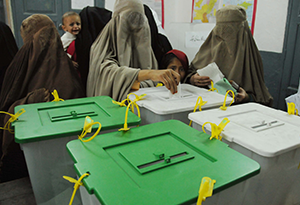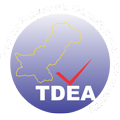TDEA-FAFEN raised the standards of citizens’ election observation in Pakistan during the General Elections process in 2013 through the Long Term Election Observation and Oversight (LETOOP) project. TDEA’s nationwide methodology was based on national election laws and procedures of the Election Commission of Pakistan (ECP), Pakistan’s ratification in 2010 of the International Covenant on Civil, and Political Rights (ICCPR) along with the 2012 Declaration of Global Principles and Code of Conduct for Non-Partisan Election Observation and Monitoring by Citizen Organizations.
More than 360 districts and constituency long-term observers (D-LTOs and C-LTOs) monitored the pre-election preparations and political campaign nationwide, and more than 130 D-LTOs monitored the post-election environment, including resolution of election result disputes. More than 40,000 short-term observers (STOs) on election day in every constituency monitored procedures during the voting, ballot counting, and election result consolidation processes. An unprecedented Election Information Management System (EIMS) for frequent reporting of election-related observations to the public and election stakeholders and enabled robust advocacy for enforcement of election law and regulations as well as long-term post-election reform.
TDEA’s unprecedented election observation effort in 2013 involved more than 40,000 trained, non-partisan citizens in monitoring the election day in polling stations, with an average of 150 short-term observers (STOs) in each National Assembly constituency. All TDEA- FAFEN observers are accredited by the ECP and adhere to the ECP Code of Conduct for National Observers. They do not interfere with voters or the administration of elections. TDEA-FAFEN trained 400 citizen observers, interviewed 8,500 contesting candidates, and engaged with 20 political parties, 21 civil society organizations, and one ECP official during the tenure of the project.
Duration: December 21, 2012 – June 20, 2014
Funding Agency: European Union (EU)





















